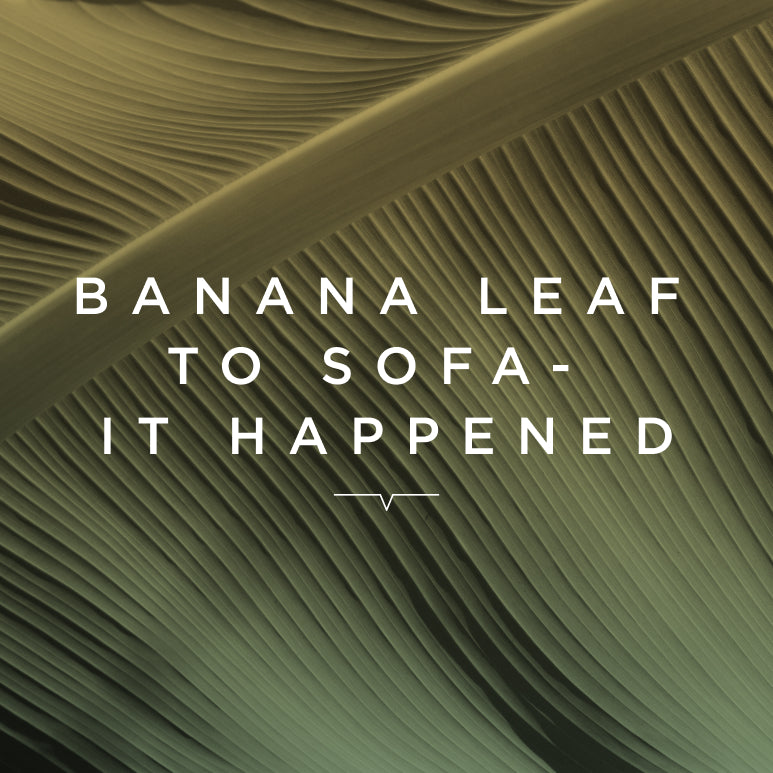(AKA HOW TO USE UP FARMING LEFTOVERS)
Picture this: it’s morning, and for breakfast you’re fixing yourself a delicious orange, banana, pineapple and rice milk smoothie. You need to leave for work but there’s just enough time to consider the vast quantities of plant waste that got left behind on farms when the contents of your smoothie were harvested. Wow - it’s a lot! Then you picture that plant waste being upcycled into something that 5 years ago, you would never have imagined: a sofa. Yes, a sofa. And it actually happened so we know that sofas made from plant waste are a real thing now.

At von Holzhausen, as part of our mission to help stop climate change, we make materials either from what already exists (see our Technik-Leather made from recycled plastic bottles) or what’s made by plants (see our Banbū). We knew agricultural waste could be the perfect synthesis of both. We worked hard in the lab for years and came up with Replant, a premium, low carbon fabric made from waste banana foliage.
And then, to see if it was as good as we hoped, we tested it on a sofa, the Soriana, a 1960s design classic. And… it was.
This is great news and others seem to agree. There’s not much more conventional virgin fiber that Planet Earth can safely provide, but there’s no shortage of agricultural waste. In India alone, it measures 92 million tonnes annually, resulting in 149 million tonnes of CO2*. Think of rice husks, wheat straw, and orange, pineapple and banana foliage not as waste, but as potential renewable sources of diverse bio-polymers to collect, spin and weave into high quality, low carbon materials, and it’s a win for the farmers, who can generate some extra income.
And the customers. And the Earth. (Earth: “Sigh. Yes, I agree.”)

Next up: continuing to work on sourcing the fibers as close to our manufacturing supply chain as possible. Partnering with farmers who use regenerative methods so that we never incentivize putting chemical fertilizers in the water. Making sure that our materials never compete with food supplies.
Today, bananas. Tomorrow, the possibilities are endless, like breakfast.
* According to Fashion for Good’s “Untapped Agricultural Waste” project



